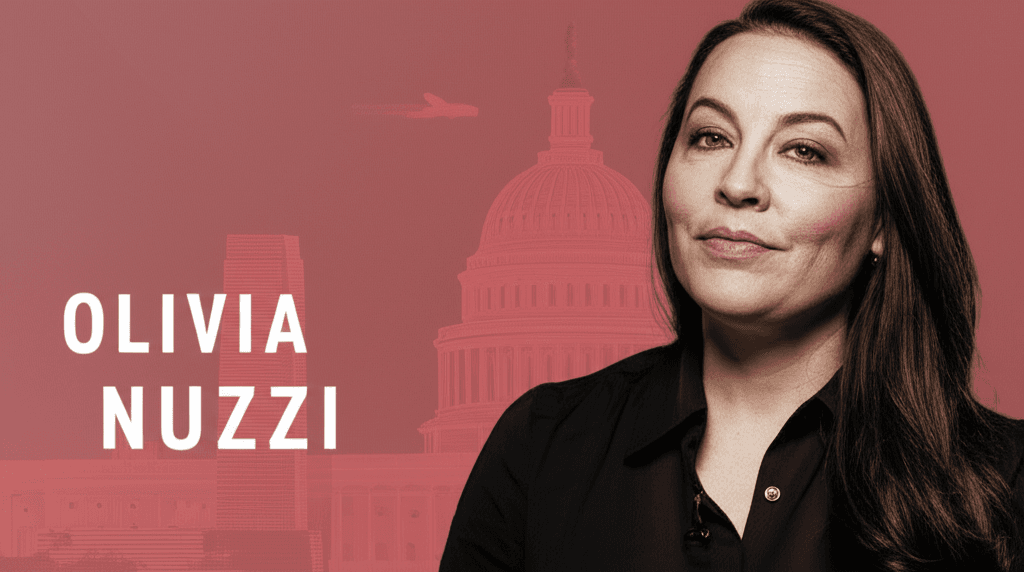Rahul Gandhi's 'SIR' Warning: Is India's Future at Stake in the Electoral Battle?
In a fiery address in Patna, Rahul Gandhi accused the ruling party of using 'SIR' (State Institutions and Resources) to not just steal votes, but also to jeopardize India's future. This provocative statement has ignited fresh debate on electoral integrity and the nation's trajectory.

Rahul Gandhi's Bold Accusation: More Than Just Votes
The political mercury in India continues to soar, especially as election campaigns intensify across the nation. A recent statement by Congress leader Rahul Gandhi in Patna, Bihar, has particularly grabbed headlines and sparked a vigorous debate. Addressing a rally, Gandhi declared that the ruling party was attempting to steal "not just vote, but future as well" through what he termed 'SIR'. This isn't just another campaign soundbite; it’s a pointed accusation that casts a long shadow over the very foundations of India’s democratic process and its societal outlook.
When Gandhi speaks of 'SIR', he is referring to the alleged misuse of 'State Institutions and Resources' by the incumbent government. This is a recurring theme in the opposition's narrative – the claim that government agencies, including investigative bodies and revenue departments, are being weaponized to target political adversaries and stifle dissent. The implication is clear: the electoral playing field is skewed, and the very mechanisms designed to ensure fair play are being co-opted. But beyond the ballot box, Gandhi’s broader point about the 'future' resonates deeply with a populace grappling with significant socio-economic challenges, signaling a struggle over more than just political power.
Deconstructing 'SIR': Allegations of State Misuse
The 'SIR' acronym, as used by Rahul Gandhi, encapsulates a core grievance of the opposition: the alleged systematic deployment of state machinery to influence political outcomes and undermine democratic norms. While not an official term or government initiative, it's a convenient shorthand for a set of tactics that opposition parties frequently cite as evidence of an uneven playing field. These allegations typically include:
- Surveillance and Intimidation: Claims of political opponents and critics being placed under undue scrutiny, with their communications monitored or their activities observed by state agencies.
- Investigative Raids and Prosecutions: Frequent accusations that agencies like the Enforcement Directorate (ED), Central Bureau of Investigation (CBI), and Income Tax Department are selectively used to launch investigations or conduct raids on opposition leaders, often leading to arrests or asset seizures. The timing of these actions, particularly before or during elections, often fuels the narrative of political vendetta.
- Resource Control and Allocation: Broader concerns that government resources, including public sector undertakings, media channels, and even government welfare schemes, are being leveraged to benefit the ruling party's electoral prospects or to marginalize dissenting voices.
These claims, whether substantiated in every instance or not, contribute to a perception among a segment of the electorate that the democratic process is under strain. The opposition argues that such actions are designed to demoralize their cadres, deplete their resources, and create an atmosphere of fear, thereby impacting the fairness of elections. It transitions from a fight for votes to a fight for democratic principles themselves.
The 'Future' at Stake: Economic, Social, and Democratic Dimensions
Beyond the immediate electoral battle, Gandhi’s emphasis on the 'future' adds a critical layer to his accusation. This isn’t merely about who wins the next election, but about the long-term trajectory of India. What aspects of the future does he contend are being 'stolen'? The opposition frequently highlights several key areas:
Youth Unemployment and Economic Disparity
One of the most pressing concerns for a country with a vast youth population like India is job creation. Opposition parties, including the Congress, consistently point to high unemployment rates, particularly among graduates, as a failure of the current economic model. Gandhi often highlights the lack of opportunities for young people, arguing that their aspirations for a stable and prosperous life are being thwarted. He contrasts the government's narrative of economic growth with the ground reality of job scarcity, especially in rural and semi-urban areas. The 'stolen future' here refers to the lost potential, the deferred dreams, and the economic insecurity faced by millions of young Indians who feel left behind.
Furthermore, discussions often revolve around widening economic disparity. Critics argue that wealth accumulation is concentrated in the hands of a few, leading to a K-shaped recovery post-pandemic where some sectors thrived while others struggled. This perception of growing inequality forms a significant part of the 'future' narrative, suggesting that the benefits of growth are not equitably distributed, thereby denying a secure future to a large segment of the population.
Erosion of Democratic Institutions and Constitutional Values
The 'SIR' accusation ties directly into a broader concern about the health of India's democratic institutions. Opposition leaders and civil society groups frequently express worries about the independence of institutions such as the Election Commission, the judiciary, and even the media. The argument is that if these pillars of democracy are compromised or perceived to be working at the behest of the ruling party, then the very framework that guarantees a fair future for all citizens is weakened.
Gandhi and his allies often invoke the spirit of the Constitution, alleging that its foundational principles – secularism, social justice, and federalism – are under threat. They argue that attempts to centralize power, diminish state autonomy, and promote a singular majoritarian narrative are eroding the pluralistic fabric of India. This, they contend, fundamentally alters the 'future' of India as a diverse, democratic republic, replacing it with a more authoritarian and less inclusive vision.
Social Fabric and Polarization
Another critical aspect of the 'future' that the opposition highlights is the alleged increase in social polarization along religious and caste lines. They argue that divisive rhetoric and policies are fragmenting society, leading to increased communal tensions and undermining social harmony. This, they claim, jeopardizes a peaceful and cohesive future for India, where different communities can co-exist and thrive. The 'stolen future' in this context is one of unity and mutual respect, replaced by division and suspicion.
Patna as a Political Hotbed: The Significance of Bihar
Rahul Gandhi's choice of Patna for this strong statement is no accident. Bihar, a politically crucial state in India's heartland, plays a significant role in national elections. With its large number of parliamentary seats and a diverse demographic, Bihar often serves as a bellwether for national sentiment. The state also presents a complex political landscape, with shifting alliances and deep-rooted caste and community considerations.
For the INDIA bloc, of which the Congress is a key component, Bihar is a critical battleground. The state’s history of large-scale public rallies and its politically aware electorate make it an ideal platform for leaders to deliver potent messages. Gandhi's speech in Patna was clearly aimed at mobilizing support, not just in Bihar, but to send a ripple effect across the nation, reinforcing the opposition’s central arguments against the incumbent government.
The Broader Political Context: A High-Stakes Election
The current election cycle in India is widely regarded as one of the most consequential in recent memory. On one side, the ruling coalition emphasizes stability, economic growth, national security, and welfare schemes. They often dismiss opposition accusations as baseless fear-mongering, pointing to their mandate and achievements as proof of public trust.
On the other side, the opposition, including Rahul Gandhi and the INDIA bloc, is attempting to reframe the narrative around core livelihood issues and the preservation of democratic principles. They seek to galvanize support by focusing on unemployment, inflation, and what they perceive as a threat to constitutional values. Gandhi's 'SIR' remark and his focus on the 'future' are central to this strategy, aiming to resonate with voters who may feel economically marginalized or concerned about the direction of the country.
The sheer scale of the Indian elections, involving hundreds of millions of voters, makes the rhetoric surrounding these issues particularly impactful. Every speech, every accusation, every promise is scrutinized, amplified, and debated across traditional and social media platforms. For more insights into how India is navigating its technological and social shifts, you might find articles on Indian Politics on our site insightful.
Beyond the Soundbite: What Does it All Mean for Voters?
Rahul Gandhi's statement in Patna isn't just a political charge; it’s an attempt to frame the entire election as a battle for India's soul. By linking the alleged misuse of state institutions to the very future of the nation, he elevates the stakes significantly. It forces voters to consider not just which party will govern, but what kind of governance they desire, and what kind of India they envision for the coming decades.
For the electorate, this kind of rhetoric presents a significant challenge: how to sift through the political noise and make informed decisions. It requires careful consideration of the facts, an understanding of the underlying issues, and a critical evaluation of the promises and accusations made by all sides. The debate over 'votes' and 'future' highlights the deeply intertwined nature of democratic participation and national destiny.
Whether one agrees with Rahul Gandhi's assessment or not, his statement underscores the intense ideological and policy battles unfolding in India. It serves as a potent reminder that elections are not just about casting a ballot, but about shaping the narrative, the direction, and ultimately, the future of a nation. As the election season progresses, the discourse around these fundamental questions will undoubtedly continue to dominate headlines, influencing millions of voters as they decide on the path forward for India.
The concerns raised about the 'future' tie into broader global discussions about democratic resilience and economic justice. Many nations grapple with issues of youth unemployment, wealth disparity, and the perceived weakening of democratic checks and balances. India, with its unique complexities and aspirations, finds itself at a crucial juncture where its choices today will undoubtedly define its tomorrow. You can explore more on India's evolving landscape in our India's Digital Revolution section.
Conclusion: A Future in the Balance?
Rahul Gandhi’s strong words in Patna have served to intensify the already heated political climate in India. His accusation that the ruling party is using 'SIR' to steal not just votes but the nation's future itself encapsulates the opposition's core arguments regarding electoral fairness and socio-economic challenges. It's a call to arms for his supporters and a stark warning to the electorate that the stakes are higher than ever.
Ultimately, the outcome of this political contest will depend on how successfully these narratives resonate with the millions of voters across India. Their decision will not only determine the next government but also set the course for how India addresses critical issues of economic growth, social harmony, and democratic governance in the years to come. The future, as Gandhi suggests, is indeed on the ballot.
Comments
Loading comments...
Related Articles

Olivia Nuzzi's 'American Canto': A Deep Dive into Her Highly Anticipated New Book
Political journalist Olivia Nuzzi is set to captivate readers with her new book, 'American Canto,' promising an unfiltered, deeply immersive journey into the heart of contemporary American politics. This article explores Nuzzi's distinctive voice, her career trajectory, and the profound themes readers can expect from her latest literary endeavor.